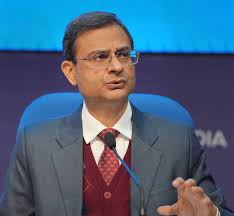NEWS
Sanjay Malhotra is new RBI Governor
Sanjay Malhotra replaces Shaktikanta Das as RBI Governor, facing challenging task of taming inflation, speeding up growth and ensuring exchange rate stability.
Sanjay Malhotra replaces Shaktikanta Das as RBI Governor, facing challenging task of taming inflation, speeding up growth and ensuring exchange rate stability.

Sanjay Malhotra replaces Shaktikanta Das as the Reserve Bank of India Governor, facing the challenging task of taming inflation, speeding up growth and ensuring exchange rate stability.
The current revenue secretary takes charge as the 26th RBI chief as Das ends his stint as the second-longest serving RBI Governor with a six-year run, behind Benegal Rama Rau’s 7.5-year term.
Malhotra, a 1990 batch Rajasthan cadre IAS officer, has been appointed to lead the RBI for a period of three years. The earlier finance ministry officials who became RBI Governors include Das, D Subbarao, Y V Reddy and Bimal Jalan.
While Das had to keep interest rates unchanged for 22 months considering inflation risks, Malhotra’s arrival has raised wide expectations that the monetary easing cycle will start in the next policy in February. Pressure has been mounting to cut interest rates as growth has slowed to a seven-quarter low of 5.4% in the fiscal second quarter ended September.
Das had refrained from easing rates in the December policy as inflation stood at a 14-month high of 6.2% in October. The reduction in cash reserve ratio (CRR) by 50 basis points to 4%, however, had sent a signal to the market for a possible rate cut in the next policy, besides being introduced to primarily infuse liquidity in the banking system.
Malhotra will step in while this debate between inflation risks versus lowering interest rates to support growth has raged. He will draw in his over three decades of experience in public policy having worked across various sectors, including power, finance, taxation, information technology and mining.
A graduate in computer science from the Indian Institute of Technology (IIT), Kanpur, Malhotra also holds a Master’s degree in Public Policy from Princeton University in the US.
Malhotra has previously worked as the chairman and managing director of the state-owned Rural Electrification Corporation (REC) and served as secretary of the Department of Financial Services under the Ministry of Finance.
Das will end his momentous innings as the RBI chief having seen through the Covid-19 pandemic, supply chain disruptions, the geopolitical hostilities and an adverse climate environment. Stepping in after the abrupt exit of Urjit Patel in December 2018, he cut the policy repo rate to a low of 4% as Covid lockdowns sieged the economy and continued with that low-interest rate policy for almost two years.
When the economy revived post-Covid, the monetary policy committee, led by Das, raised interest rates starting May 2022 to rein in inflation.
